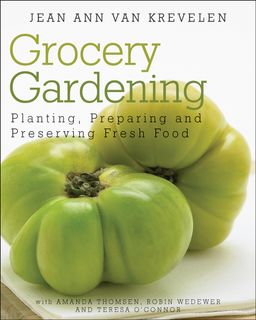'San Marzano' paste tomatoes about to ripen.
If you're craving delicious homemade tomato sauces, pastes, salsas or ketchup -- not to mention sun dried tomatoes -- look no further than the paste tomatoes.Beefsteaks, grape and cherry tomato varieties taste delicious in salads and on sandwiches. But when it comes to cooking and preserving, the paste tomatoes are typically the ones to pick.
Paste tomatoes have meatier flesh, fewer seeds and less water than other types. As a result, these varieties create a thicker juice and require less time to cook down to a paste consistency.
Of the many delicious paste tomatoes available, here are six super ones to try:
'Roma' - When you say "sauce tomato," this is what most people hear. The popular heirloom is ideal for cooking and processing. Compact bush plants are prolific producers of 3 inch long fruit that tends to ripen all at once. (Determinate; 78 days)
'San Marzano' - In Italy, this heirloom is considered the premier variety for canning, tomato paste or puree. Bright red pear-shaped fruit has little juice and heavy, flavorful walls. Crack resistant, 2 to 3 inch tomatoes grow in clusters on productive plants. (Indeterminate; 80 days)
'Grandma Mary's Paste' - Besides having a terrific name, this old variety has delicious 3 inch red tomatoes, which are perfect for cooking or eating fresh. Plants are very prolific. (Indeterminate; 70 days)
'Purple Russian' - All season long, this tasty heirloom produces dark purple oval fruit, which has a meaty, rich flavor ideal for processing. Four inch plum-shaped tomatoes grow on disease resistant plants. (Indeterminate; 80 days)
'Principe Borghese' - This old Italian variety is famous for sun dried tomatoes. Red grape-shaped fruit is dry with few seeds, making it well suited for sauces too. Fruit grows in heavy clusters. (Determinate; 75 days)
'Jaune Flammee' - This prolific French heirloom is actually a globe tomato, not a paste. But the golden-yellow fruits with contrasting red interiors make lovely and delicious sun dried tomatoes. (Indeterminate; 70 to 90 days)
This story originally appeared as a guest post in The Practical Preserver.











